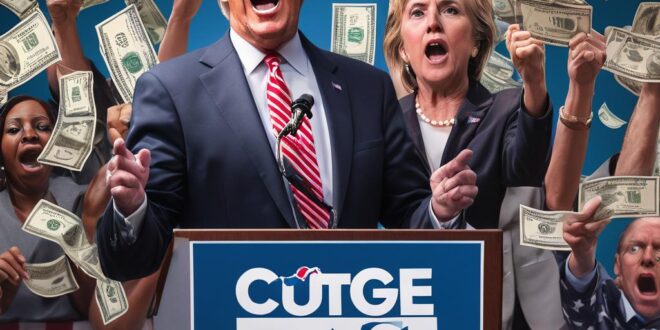In the upcoming 2024 US Presidential Election, the influence of campaign finance on election outcomes is a topic that has garnered significant attention.
As candidates from both major political parties vie for the presidency, the role of big donors and the potential influence of money on policy decisions cannot be ignored.
In this article, we will delve into the impact of campaign finance on the 2024 election and how it may shape the future of American politics.
The Role of Big Donors in the 2024 Election
Big donors have long played a crucial role in shaping the outcome of American elections. In the 2024 race, both the Democratic and Republican parties have relied on the financial support of wealthy individuals and corporations to fund their campaigns. Some of the most prominent donors include:
George Soros: A billionaire investor and philanthropist, Soros has been a major donor to the Democratic Party for years. In the 2024 election, he has pledged to support candidates who align with his progressive values and policy priorities.
Sheldon Adelson: A casino magnate and staunch Republican, Adelson has been a significant donor to the GOP and its candidates. He has contributed millions to the campaigns of President Donald Trump and other Republican politicians.
Tom Steyer: A hedge fund manager turned environmental activist, Steyer has been a major donor to Democratic candidates and causes. In the 2024 election, he is expected to support candidates who prioritize climate change and other progressive issues.
Charles Koch: A billionaire businessman and one of the most influential donors in American politics, Koch has been a significant supporter of the Republican Party and its candidates. He is known for advocating for free-market policies and limited government intervention.
The Potential Influence of Money on Policy Decisions
The influence of campaign finance on policy decisions has been a topic of debate for years. Critics argue that big donors have an outsized influence on the political process, pushing candidates to prioritize their interests over those of the general public. This can lead to policies that favor wealthy donors at the expense of the broader population.
Some examples of how campaign finance can influence policy decisions include:
Tax policy: Wealthy donors often support candidates who advocate for lower tax rates and reduced regulations, which can benefit their businesses and personal finances.
Healthcare: Donors with ties to the pharmaceutical and insurance industries may push candidates to oppose policies that would reduce healthcare costs or expand access to care.
Climate change: Donors with interests in fossil fuels and other industries that contribute to climate change may oppose policies aimed at reducing greenhouse gas emissions and transitioning to renewable energy.
The influence of campaign finance on the 2024 US Presidential Election cannot be overstated. As candidates rely on the financial support of big donors, the potential impact of money on policy decisions looms large.
It is essential for voters to be aware of these connections and to consider the implications when casting their ballots. Ultimately, the role of campaign finance in the 2024 election will help shape the future of American politics and the lives of its citizens.
Subscribe to the Advocate News letter and receive news updates daily in your inbox.
 Advocate.ng Latest news update on politics, entertainment, sport and more
Advocate.ng Latest news update on politics, entertainment, sport and more



